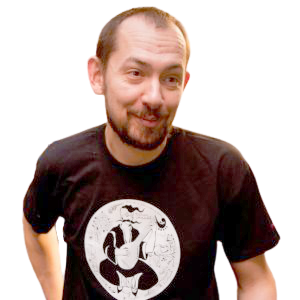The Kremlin is increasingly giving up on the people who took direct part in the seizure of the Ukrainian land. Instead, Moscow chooses to install its own people, who are 100% loyal to their leader, in key posts in occupied Crimea. It appears Russia no longer needs those who had urged Putin at their rallies to “bring in the troops”. At that time, he actually did, but now the fairytale seems to be over.
Russia has several reasons to forget these people, the primary one being that nobody likes traitors and collaborators. It was a similar situation with the Ukrainian military who sided with the occupiers. For the most part, they are now getting familiar with the vast territories of their new, and colder, homeland, to which they shortsightedly vowed allegiance. It was the same with the "icons" of the "Russian world", occupied parts of Donbas. Currently, it is the turn of the so-called "Crimean political elite", who were easy to convince into collaboration.
Strictly speaking, this is the reason for the change of the Sevastopol governor and the abolition of the so-called "Crimean Federal District" created by the occupying authorities shortly after the pseudo-referendum and the signing of the accession treaty. The number of former Ukrainian officials-traitors in Crimea is continuously decreasing. It’s only the most cunning -- the ones that are OK with stepping over the shoes of their own kind -- who may remain at the helm in Crimea. The rest will be replaced by Vikings” from the actual Russian territory.
Anyone who is even slightly familiar with the Russian political system knows that the so-called presidential envoys to the regions, by and large, are just officials who are offered the post as an honorable retirement or are sidelined and must live through the temporary “hard times” hoping to get a really lucrative office. But they still have to be “faithful dogs” of the regime. They are the layer between the presidential administration and the regional governors, who enjoy the real power on the ground.
The task of the envoys is to provide additional control, monitor the governors and draft reports on how they undertake the orders of the Russian president. Well, they get to enjoy government-provided vehicles and accommodation.
Crimea is another thing. In fact, the "Crimean Federal District" was created precisely to control the "new Russians", who, following the deployment of troops from the neighboring country suddenly became more Russian than the real Russians. Two years into the occupation, it became clear that the new “leaders” of Crimea were so passionate about their inner squabbles that they actually forgot about serving their new master. These leaders will be pushed aside. Perhaps soon, there will be no ardent supporters of the "Russian world" left there, who were once in the public spotlight during the operation to annex the peninsula. A new story will begin; a story according to which the peninsula always belonged to Russia. As if there were no "polite little green men". Fortunately for Moscow, the memory of the citizens of a state, which has for so many years been rising from its knees, is very short.
It’s only the most cunning -- the ones that are OK with stepping over the shoes of their own kind -- who may remain at the helm in Crimea.
The Kremlin hastened to assure the Crimean residents that their lives wouldn’t change following the major reshuffle. And, in this case, it is not difficult to believe. It is unlikely that in the near future, the aspirations of the local residents will be heard. This is the Russian reality, ladies and gentlemen: the last time your voice was heard was at the pseudo-referendum. No one will ask for your “opinion” any more.
Russia's "talking heads" from the "expert" community are already spreading the message that the “Crimean Federal District" is not a foregone conclusion, since the process of absorption of the Ukrainian peninsula has been completed. In practice, this means that the news about the occupied Crimea will appear no more often than, say, some Republic of Adygea… And this godforsaken region is mentioned in the federal news only during the rare visits of the Russian president. Crimea, of course, is luckier, as it is now formally Russia’s second tourist capital, so it will be mentioned a little more often, although not too much, as the summer is short.
Russia is a complex country, and whatever happens there cannot be interpreted unambiguously. It is always a set of compromises and is a result of the struggle of various power groups. But this is a perfect example for the Ukrainian elite, still flirting with the aggressor.
They still fail to fully understand that Moscow despises them and that they would never be room for them in the Russian political arena. Crimea and Donbas are clear examples. However, not everyone has learned this lesson yet.
Roman Tsymbaliuk, Moscow


